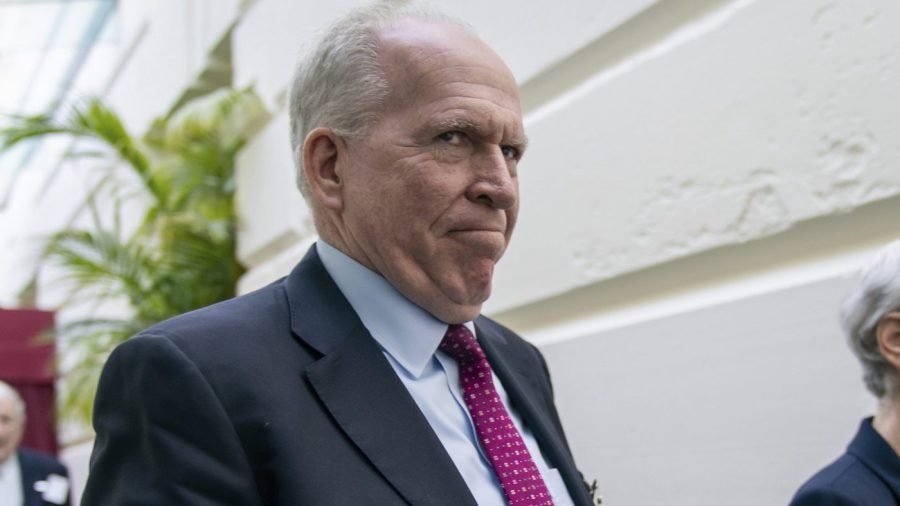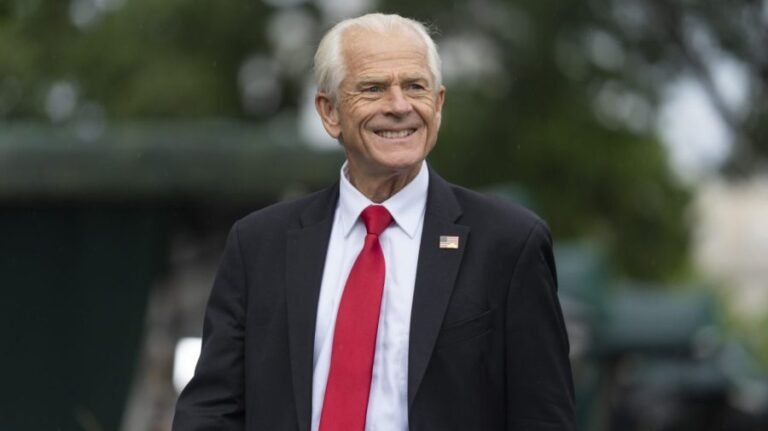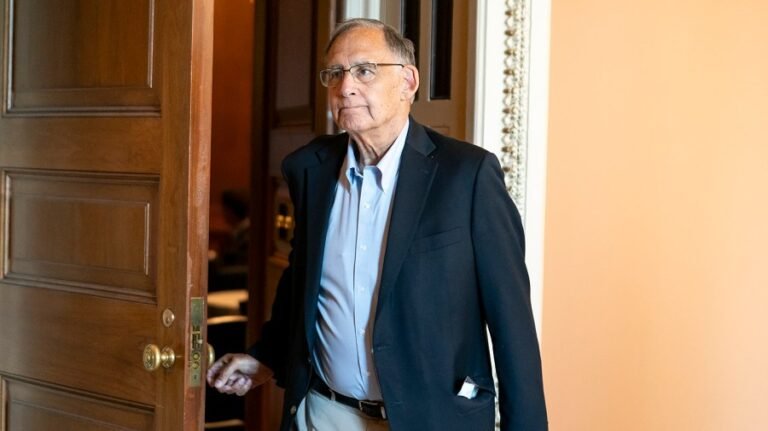
Former CIA Director John Brennan and former Director of National Intelligence James Clapper used a joint op-ed to push back on claims from the Trump administration that Obama-era intelligence officials misrepresented conclusions about its review of Russia’s effort to influence the 2016 election.
“Tulsi Gabbard, the director of national intelligence, and John Ratcliffe, the Central Intelligence Agency director, have over the past month claimed that senior officials of the Obama administration manufactured politicized intelligence, silenced intelligence professionals and engaged in a broad ‘treasonous conspiracy’ to undermine the presidency of Donald Trump. That is patently false,” the duo wrote in The New York Times.
The intelligence community concluded that Russia interfered in the 2016 election with the aim of aiding President Trump in the contest.
The pair then listed a suite of reports that backed that conclusion, from Trump-appointed special counsel John Durham to a bipartisan Senate Intelligence Committee report prepared under now-Secretary of State Marco Rubio.
“Every serious review has substantiated the intelligence community’s fundamental conclusion that the Russians conducted an influence campaign intended to help Mr. Trump win the 2016 election,” the two wrote.
Amid pressure on the Trump administration to release files related to the prosecution of deceased financier Jeffrey Epstein, the Trump team has released several other tranches of documents.
Gabbard, in particular, has released a memo and documents she said shows Clapper withheld information from the American public, including that there was “no indication of a Russian threat to directly manipulate the actual vote count.”
That was never in dispute though, and intelligence officials said at the time that Russia was unable to manipulate vote counts.
The documents released by Gabbard show intelligence officials discussing that Russia was unable to change any votes.
Gabbard later released a report from House Intelligence Republicans casting doubt on whether Russia aimed to help Trump versus sow chaos in the U.S., but most other assessments back the conclusion the adversary did so with the hopes of boosting the president.
But beyond the documents released, Gabbard and others have largely talked about the intelligence community’s review of the 2016 election as part of a conspiracy to damage Trump, undermine his victory, and boost the largely-debunked Steele dossier.
“Contrary to the Trump administration’s wild and baseless claims, there was no mention of ‘collusion’ between the Trump campaign and the Russians in the assessment,” they wrote.
“We have testified under oath, and the reviews of the assessment have confirmed, that the dossier was not used as a source or taken into account for any of its analysis or conclusions,” they added.
They also reiterated that the assessment made no judgment about the impact Russia’s moves had on the outcome of the election.
“While some state and local electoral boards and voter information and registration systems were accessed by Russian intelligence, the assessment made clear that none of those types of systems were involved in counting votes,” they wrote.
“Russian influence operations might have shaped the views of Americans before they entered the voting booth, but we found no evidence that the Russians changed any actual votes.”
Clapper and Brennan go on to describe efforts to keep their intelligence work shielded, understanding the influence it would have on the election, calling it a “remarkable irony” to have Trump figures release it now.
“The real politicization is the calculated distortion of intelligence by administration officials, notably Mr. Trump’s directors of national intelligence and the C.I.A., positions that should be apolitical. We find it deeply regrettable that the administration continues to perpetuate the fictitious narrative that Russia did not interfere in the 2016 election,” they wrote.
“It should instead acknowledge that a foreign nation-state — a mortal enemy of the United States — routinely meddles in our national elections and will continue to do so unless we take appropriate bipartisan action to stop it.”


